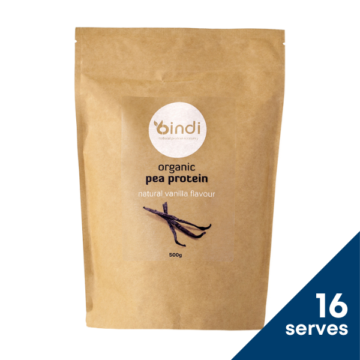When it comes to weight loss, a simple search will reveal hundreds of methods from keto, intermittent fasting, cleanses and many more. Ask anyone and they will have a different opinion. Whether you are at the beginning of your health journey or looking to drop some kilos to reach a racing target, the range of methods out there can be overwhelming. Is it actually viable to just train more and eat less, which is the basis of so many diets? Or is this just a myth?
Conventional nutrition methods suggest that weight loss is achieved through 80% diet and 20% exercise. Let us dive into this topic and unpack the best ways to manage weight loss for active people.
Is cutting calories the answer?
The fundamental principle behind weight loss is simple; by burning more calories than you consume, you will inevitably lose weight. By restricting caloric intake your body will instead draw on existing fat stores to power you throughout the day. In theory, this is the most straightforward and simplified way to manage weight loss. However, a recent study investigated the hypothesis that reducing energy intake through a caloric reduction (ie dieting) may not be the best approach to long term weight loss.
Conventional nutrition methods have instilled the theory that dieting will lead to weight loss, and despite one of the most common myths that dieters who regain weight have a lack of ‘willpower’ this is not the problem. This can in turn put the blame or ‘failure’ back onto the dieter, which perpetuates the downwards spiral.
Most people when looking to lose weight want to do it quickly, getting that quick fix through calorie restriction and increased exercise. Calorie reduction can be likened to a pebble which creates a ripple effect throughout the body. Your body’s metabolism relies heavily on energy or caloric intake to function effectively. Your metabolism is a multi-factorial process which powers day to day functions as well as sustaining life. Put simply, metabolism is how your body converts what you eat in food and drink into energy. The energy from your diet is combined with oxygen and is a vital component of this complex process, allowing your body to function from day to day. Therefore, a healthy metabolism is not only an essential component for general health but also to manage long term weight loss.
The Negative effects of calorie reduction
When your calorie intake is too low over a period of time, your body enters starvation mode. This is when the metabolism can become slowed and can lead to a reduction in weight loss as well as other side effects of starvation including:
- Low blood pressure and heart rate
- Electrolyte imbalance
- Brittle bones, fingernails and hair
- Heart rhythm abnormalities
- Gallstones
- Loss of menstrual periods
The metabolism is such a key component of the body’s weight that it can be a contributor to unwanted rebound weight gain. Research shows that sluggish metabolism can account for up to 80% of people regaining weight after dieting. Rebound weight gain is the term that refers to the short amount of weight that is gained shortly after stopping a diet.
The long-term effect for regular dieters is that their metabolism slows and weight loss can be difficult to achieve and maintain long term. This cycle can lead to heavy weight fluctuations over time.
Training and weight loss
When it comes to your training, your ability to perform is also heavily impacted by your caloric consumption. With severe caloric restriction, your body will metabolise stores of glucose and fat stores and eventually muscles and tissues to get the energy it needs to sustain life. The result is a lack of energy, dehydration, muscle wastage and brittle bones, which in turn can lead to an increased risk of severe injury and light headedness during exercise. We all know that feeling of intense fatigue if we haven’t fuelled our training well, and that can lead to demotivation and even missing training sessions
What can work long term for weight loss?
If weight loss is a goal that you want to achieve while still training, the best way is to use a method which is sustainable, and still supports your training goals and gives enough energy for the rest of your life too! Here are some of our favourite methods:
Intermittent Fasting
Intermittent Fasting (IF) is an increasingly common way of eating that has become popular over the last few years. IF is also known as time-restricted eating, where the aim is to restrict when you eat, rather than necessarily what you eat. A recent review of the science of fasting shows that it can improve metabolism, lower blood sugar, and lessen inflammation. It can also help clear out toxins and damaged cells, which lowers the risk for cancer and enhances brain function. One of the most popular methods is the 16:8 method – fasting for 16 hours and eating during an 8-hour window. Read our full blog here on Intermittent Fasting.
Carb Cycling
If you alternate your intake of carbohydrates when training, that’s called carb-cycling. Some people choose to alternate daily, weekly, and even monthly, with each cycle featuring slightly increased benefits. Some cycling includes low-carb diets, while others include moderate-carb and high-carb.
Carb-cycling is mostly used by athletes to enhance and maintain performance levels. However, it is also an effective strategy when losing weight (particularly fat). It is especially helpful when battling the frustrating plateau that we often hit when trying to lose excess weight. Carb-cycling is appealing to athletes who want to regulate their carbohydrate intake and only eat them strategically — when they can help maximize performance. Read our full blog here on Carb Cycling.
Wholefood Nutrition
A whole food diet simply encourages a diet comprising mostly of plant-based foods and minimally processed foods. Wholefoods are rich in nutrition and lower in fats than other processed food options. If going strictly plant-based seems overwhelming, adopting a ‘flexitarian’ eating style may be for you. Flexitarian eating styles compose of eating a plant-based whole food diet for 90% of the time but allowing the flexibility for a non-plant-based meal once a week.
A plant-based diet has been shown to prevent and reverse both heart disease and Type 2 diabetes. Plant-based eating has also been associated with improved weight management, reduced mortality and a lowered risk of certain cancers. In addition, it is also linked to an improvement in heart disease, cholesterol and blood pressure markers. Read our full blog here on Transitioning to a Plant-Based Diet.
Sustainability is Key
Sustainability is the key to achieving long term weight loss. You must nourish your body with the fuel it needs to perform, whether on track, in the gym or in the office. Balancing a highly nutritious diet with exercise will help you reach your health goals over the long term.
At Bindi, we have a range of products to help you become the best version of yourself, no matter if you’re a professional athlete or just beginning your health journey. As with any weight loss program, it is essential that your protein intake is maintained (to keep you full and help prevent muscle mass) and that your nutrient and antioxidant intake is optimal.

